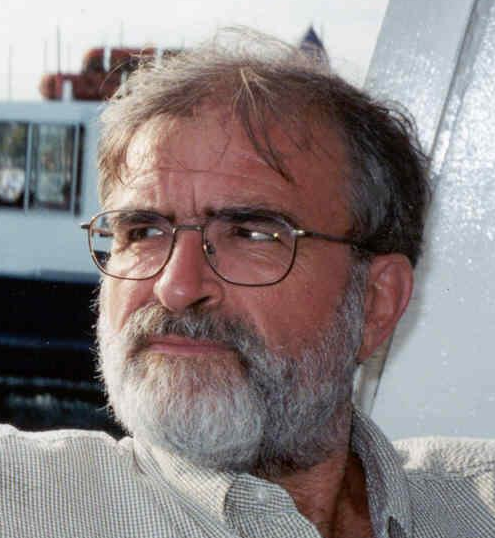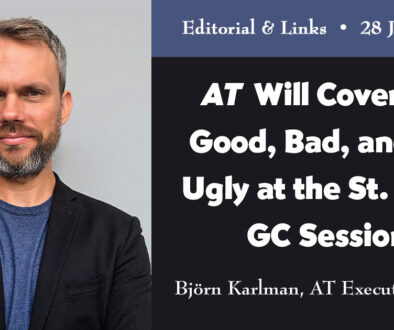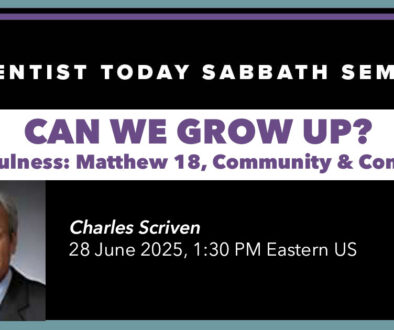The Relevance of Adventist Teachings in Animist Cultures
by Ronald Lawson, Ph.D. | 27 April 2019 |
I am completing an ambitious sociological study of global Adventism. My research has taken me to 56 countries in all divisions of the world church. I focus here on Africa and Papua-New Guinea (PNG), both of which have pervasive animist cultures. I will share with you some vignettes that will raise some issues where I am still wrestling with interpretations. I am hoping that this will help you to understand some of the issues Adventists face in trying to maintain a centrally organized world church with 28 mutually agreed on “fundamental beliefs”; I am hoping too that you will have insights that could help me make better sense of what lies behind these vignettes.
Keep in mind that Adventism has been doing very well in these animist societies in recent decades. As of the end of 2006 our official membership statistics showed 5,121,819 members in Sub-Saharan Africa—that is one-third of the world membership.
Adventists have established several universities and other institutions of higher learning in Africa and PNG which have become respected institutions in recent years: they have faculty with doctorates and masters degrees, increasing numbers of whom are Africans and New Guineans. However, I was surprised when I asked those faculty members about issues that are currently the focus of debate in the Adventist universities of the developed world how uninterested they typically were in those debates; they mouthed the official responses, and I realized that these were not their issues. For example, when there were three years of officially encouraged debate about science, creation and evolution, and the divisions were supposed to have their own meetings and discussions during the second year, several divisions in the developing world, including those in Africa, did not bother to schedule those discussions. I was left wondering whether they had theological questions of their own that were relevant to their cultures.
Vignettes
- As I traveled I met with student focus groups at both Adventist colleges and secular universities where there were groups of Adventist students. One of the questions I asked was “What is the core of Adventism here?” In Africa their responses almost never mentioned Christ.
- I was in Nairobi, Kenya, on the Sabbath before Christmas. I went to the early service in the church on the union compound, which was in English and where they sang hymns from the old Church Hymnal without enthusiasm. The sermon, which was due to be taped at the later service, explained why Adventists regarded it as a sin to celebrate Christmas. After that service I was taken to a poor church in a rented building in the outskirts of the city. The service had begun when we arrived, and they were singing from a translation of the same hymnal—again without enthusiasm. However, it was obvious that they were excited to see my party enter. Their choir had not been scheduled to sing that day, but they decided to add some songs near the end for our benefit. These songs turned out to be African songs in Swahili, and they were suddenly alive, pouring their souls into the music. This was an exciting, memorable experience for me.
- When I arrived in Lagos, Nigeria, my first interview was with the president of the Union. He told me in some detail about a dispute in the churches about having African drums used in church services. These had been prohibited by the early missionaries because of the association with animist culture, where drums and rhythm are central. However, the youth had been requesting a change of rules, and the Union had recently authorized their use. However, this had led to an uprising by older concerned brethren, who had succeeded in having the ban reinstated. He added that Adventist students had been attracted to Pentecostal services by the indigenous music used there.
- A few days later I went to the University of Lagos to meet with a focus group made up of Adventist students there. We met in a huge chapel that was shaped something like a clover leaf. Half an hour or so into our meeting we were suddenly interrupted by amazing music, which they told me was coming from a Pentecostal service in another part of the chapel. It was amazingly beautiful music—sung a capella and in harmonies that were new to me. I would have loved to stay and listen, but it was impossible to continue our meeting there, so we moved outside under a tree. When I asked the students if they ever attended Pentecostal services, many said yes, and added that they had gone for the music but had found Christ there in a way they never had before. They did not want to become Pentecostals, but they wanted to take their experience with Christ to their Adventist churches. However, when they tried to talk about that, they were told to be quiet—that was Pentecostal religion, not Adventism.
- AIDS is ravaging Africa. When I interviewed Bekele Heye, who was then the president of the East African Division, at the General Conference (GC) session in 1990, he told me that AIDS was “not an Adventist issue.” However, it has since been recognized that the death rate from AIDS is similar among Adventists to the rest of the population; many pastors have died of the disease, and administrators too. An American doctor who is an AIDS specialist and has worked very hard to persuade the Divisions in Africa to recognize that this is indeed an Adventist issue commented to me that “Adventism in Africa is miles wide, but only an inch deep.”
- I was in Rwanda before the massacres. Adventism was a well-established church, long-established, now in its third generation, and the largest Protestant church in the country. I realized it was a church with problems, with a lot of members whom the New Guineans would call “skin Seven-days.” There were lots of reports of sexual abuse of students and nurses by men in authority; it became evident that the drinking of banana beer by members and pastors was a huge problem—they did not call it alcohol because they brewed it themselves and the drinking of it is so pervasive in the society. I was not so surprised when I learned later that Adventists had killed one another during the massacres, that their tribal identity was often stronger for them than their Adventist identity.
- The first Black African country I did research in was Zimbabwe. I was picked up at the Bulawayo airport by an American missionary-teacher, who drove me to what was then known as Solusi College, which had been the first Adventist college to be established in Africa. Along the way he told me of a terrible problem they were facing: two of the female students had been possessed by evil spirits for a couple of weeks, and all their attempts to remedy this situation had failed. Yes, prayer had several times succeeded in stopping their screaming and cursing, and they would then become as if unconscious. Then, after a while, the girls would get up, and behave normally. But then the whole cycle would begin again. I was taken aback, feeling I had no understanding of this phenomenon: I remembered reading some articles in the Review where people would become possessed at baptisms, but these were stories of triumph, not failure and frustration: a missionary would cast the evil spirit out, and all would proceed as planned at the baptism.
- My interest piqued, I included questions on encounters with spirits among my interviews with students at Solusi, where the student body came from all over Southern Africa. I was told, for example, about the mission president who feared that he might not be chosen for another term because there was another, better educated, pastor in the field. So he went to a witch doctor, who gave him a potion that was said to assure that he would be reappointed to the post. He was. Another story concerned a pastor, who, as is typical there, had to be away from home a lot because he pastored a score of churches. Afraid that things could go wrong with his wife and family while he was away, he sought the help of a witch doctor, who gave him what was needed to set up an altar in his home that would protect them while he was away.
- When I went to PNG, aware that it was another animist society, I again asked questions about Adventists and the spirits of their ancestors. It became abundantly clear that many Adventists lived in fear of the spirits and yet also used them—personally and collectively. I could give you dozens of examples—let this one suffice to illustrate what I mean. I had timed the beginning of my first visit there to coincide with a meeting in Port Moresby of Adventist leaders from both the GC and the Division with Adventist politicians. The Sabbath I was in Goroka the Mission President, an Australian, took me to three very different churches. For the worship service we went to the church in the village of Kabiufa, a long-time Adventist village which is the location of the oldest and most famous of the Adventist high schools in PNG. I was happy there to recognize a politician I had met and interviewed at the meeting in Port Moresby, and we chatted after the service. After a full afternoon, during which I had toured the high school and seen much and talked with many people, we returned to his home. There was a call, and he emerged from it very concerned: the politician had died that afternoon of what we would call a heart attack. However, the village council was meeting that evening to divine who was responsible for his death. The next day he told me that they had settled on a neighboring village, and told me, very concerned, that this was likely to result in armed clashes between the two villages which were likely to result in bloodshed.
- A standard question I ask of pastors and administrators is what themes they emphasize in their sermons. The answers in PNG were almost always “Babylon, Medo-Persia, Greece and Rome.” No one ever mentioned anything about the fear and use of the spirits of the dead. I became concerned: how irrelevant these topics were to the needs of the people as I have come to understand them! They were scratching where the people were not itching.
- When I went to the college in Rabaul, which was then still the main producer of pastors, I interviewed the only New Guinean in the religion department. Telling him what I had been hearing, I asked him what he taught about this material. His face became immediately serious, and he stood up and drew my attention to a map of PNG on the wall behind him. He pointed to a small island off the coast, where he had lived as a child—he said he understood the spirits there. Then he pointed to a location on the mainland where he had completed his primary education in an Adventist school; another where he had completed high school; Rabaul, where he had attended college; and Fiji, where he had completed a Master’s degree at Fulton Missionary College. He said he did not understand the spirits at any of those other places. So he felt he could not teach about the spirits of the ancestors. So, he said, “I teach about Babylon, Medo-Persia, Greece and Rome.”
The GC a few years ago added a 28th point to the list of Fundamental Beliefs. This is purportedly an endeavor to address such issues. However, I suspect that you would need to have been clued in about the context in order to realize it from reading the wording of the belief. Here it is:
“11. Growing in Christ: By His death on the cross Jesus triumphed over the forces of evil. He who subjugated the demonic spirits during His earthly ministry has broken their power and made certain their ultimate doom. Jesus’ victory gives us victory over the evil forces that still seek to control us, as we walk with Him in peace, joy, and assurance of His love. Now the Holy Spirit dwells within us and empowers us. Continually committed to Jesus as our Saviour and Lord, we are set free from the burden of our past deeds. No longer do we live in the darkness, fear of evil powers, ignorance, and meaninglessness of our former way of life. In this new freedom in Jesus, we are called to grow into the likeness of His character, communing with Him daily in prayer, feeding on His Word, meditating on it and on His providence, singing His praises, gathering together for worship, and participating in the mission of the Church. As we give ourselves in loving service to those around us and in witnessing to His salvation, His constant presence with us through the Spirit transforms every moment and every task into a spiritual experience. (Ps 1:1, 2; 23:4; 77:11, 12; Col 1:13, 14; 2:6, 14, 15; Luke 10:17-20; Eph 5:19, 20; 6:12-18; 1 Thess 5:23; 2 Peter 2:9; 3:18; 2 Cor. 3:17, 18; Phil 3:7-14; 1 Thess 5:16-18; Matt 20:25-28; John 20:21; Gal 5:22-25; Rom 8:38, 39; 1 John 4:4; Heb 10:25.)”
In planning my chapter that will deal with theological issues and changes over time, I have concluded that the debates about such issues occur in the developed world, and that they are about the theological agenda and issues of the church, its leaders, theologians, and members in the developed world—that there is a conspiracy of silence about the issues of countries of the developing world. I have a hunch that the leaders and teachers in the developing world would rather leave things well enough alone—that is, leave their issues on a back burner. I am left wondering how relevant our teaching is there, and what the ingredients are of the great attraction that Adventism has there.
 Ronald Lawson is a lifelong Seventh-day Adventist, and a sociologist studying urban conflicts and sectarian religions. He is retired from Queens College, CUNY.
Ronald Lawson is a lifelong Seventh-day Adventist, and a sociologist studying urban conflicts and sectarian religions. He is retired from Queens College, CUNY.




